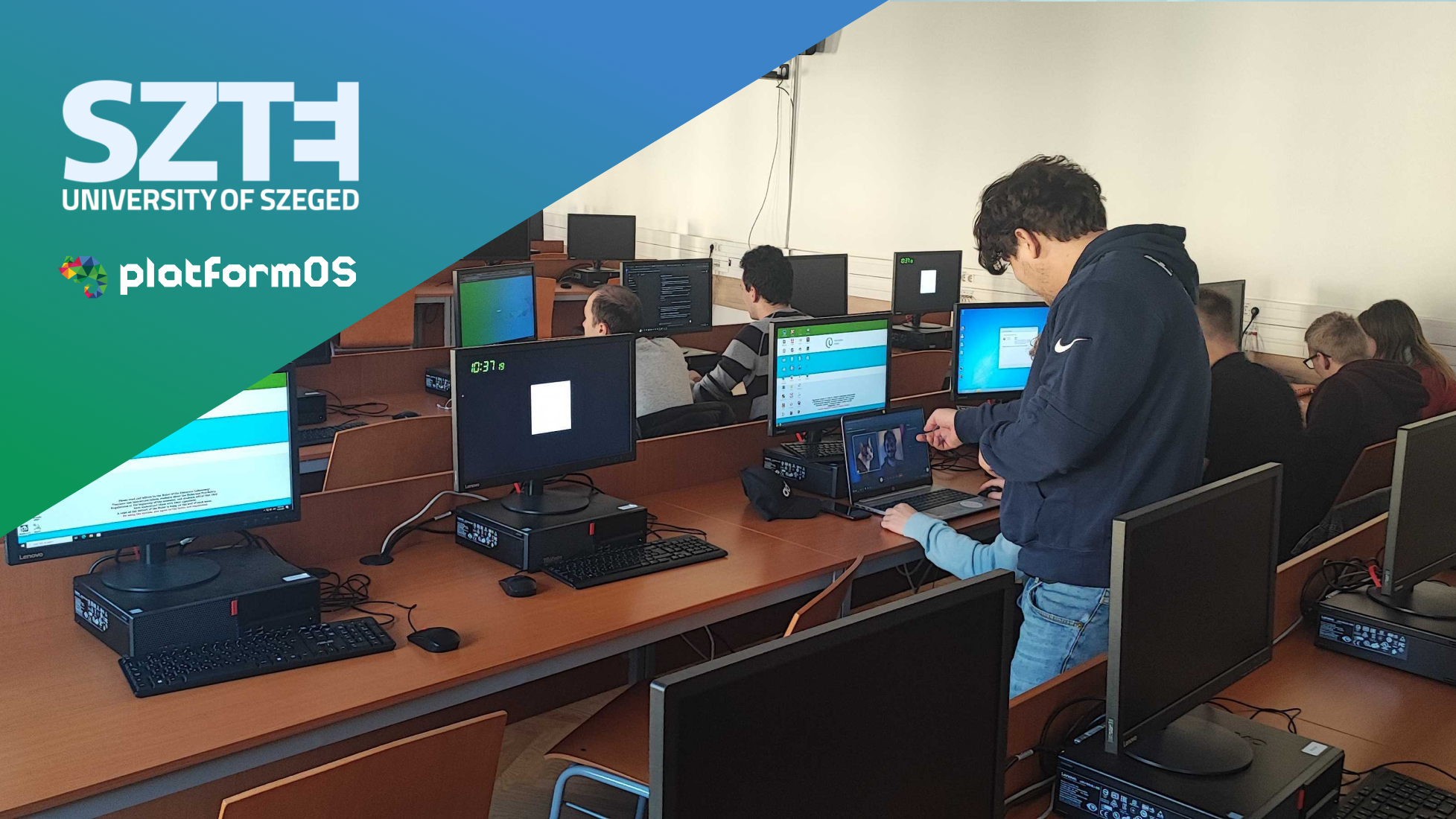Exploring PaaS for Dynamic Online Ventures: Mid-Course Status Update
Agnes Kanizsai | November 11, 2024

We’re now halfway through the “Exploring Platform as a Service (PaaS) for Dynamic Online Ventures” course at the University of Szeged, where students are diving deep into the world of PaaS and getting hands-on experience with platformOS. With a first cohort of 15 students interested in the field, we’ve completed five lessons led by our expert team. These sessions covered topics from product development, User eXperience (UX) research and design to building scalable applications. Here’s an overview of the journey so far – and a sneak peek at what’s coming next.
Key Sessions and Takeaways So Far
The course began with an inspiring session from platformOS founder Adam Broadway, a Silicon Valley tech entrepreneur who’s built and sold numerous technology companies, his last, Business Catalyst, acquired by Adobe. Adam gave students an engaging overview of PaaS, platformOS, and Agile development principles, blending real-world insights from product development, project management, and the ups and downs of remote teamwork. His talk set a strong foundation and raised interest for the modules ahead.
The User Experience (UX) Research and Design sessions were led by our UX experts Kata, Kitti, and Noémi, who dove into the critical role of UX research and design within the development process. They guided students through the UX process—understanding user needs, planning information architecture, mapping site structures, creating user journeys, and even developing prototypes. This hands-on approach showed students how to design with both the user experience and technical feasibility in mind, balancing creativity and practical constraints.
During the Technical Skills and Development on platformOS lessons, platformOS CTO Maciej Krajowski took the lead with the technical sessions, introducing students to the platformOS environment and guiding them step-by-step. Students formed small teams, each working on their own instances to configure environments, set up authentication, and handle data management. By using the pos-cli tool and the platformOS-check Visual Studio Code extension, they learned to deploy code, handle database queries, and manage background tasks—all crucial skills for scalable application development. Each team worked together to solve problems and create working prototypes.
In the following sessions, diving deeper into development, students got into the details of building applications on platformOS, working with routing, GET/POST requests, Liquid templating, and Create, Read, Update, and Delete (CRUD) functions with GraphQL. They practiced creating queries and mutations, gaining the skills needed to manage data flow and interactions in complex applications.
One of the most exciting sessions involved students setting up OpenAI-powered search functionalities. Using GraphQL, they configured OpenAI embeddings to bring advanced search capabilities to their applications, improving search relevance and making content retrieval smarter. This experience showed them how AI can elevate user experience in practical ways.
Ongoing Lessons and Upcoming Highlights
Right now, students are learning the principles of modular architecture with platformOS, including how modular systems differ from monolithic ones, how to structure their code, and best practices for building modular applications. They’re working with platformOS-specific components, hooks, and user permissions, all essential for building complex, integrated solutions.
In the coming weeks, the course will focus on Developer Documentation and Docs as Code led by platformOS’s Director of Documentation, Diana Lakatos, who will introduce students to Docs as Code. With her expertise recently recognized by the UK Technical Communication (UKTC) Merit Award, Diana will teach best practices for clear documentation, and how to approach documentation with sustainability in mind.
After gaining theoretical knowledge of Docs as Code and developer documentation, students will explore Docs as Code implementation examples built with DocsKit, an all-in-one documentation solution, and master the editorial workflow under the guidance of Alex Pozsar and Tibor Koos. To complete the documentation phase, they learn about Web Sustainability and Accessibility, exploring inclusive and eco-friendly web design. Throughout this session, they will focus on understanding how their designs impact both users and the planet, with support from both Diana and Alex.
We’ll wrap up the course with modules on Quality Assurance and Digital Marketing tailored for scalable products solving hard business problems. From defect tracking and testing to SEO, SEM, and email automation, these sessions will give students the complete toolkit for launching and managing successful products that can augment existing legacy apps or build enterprise grade solutions from the ground up.
Looking Ahead
With five more sessions to go, students are building a solid foundation in PaaS, platformOS, and real-world application development. By blending technical skills with strategic insights, this course is equipping the next generation of developers, designers, and innovators to thrive in the fast-paced world of tech. We’re excited to see where the rest of the journey takes them!
Stay tuned for more updates as we head into the final stretch of this transformative course!!
Interested in knowing more about partnering with platformOS?
Ensure your project’s success with the power of platformOS.